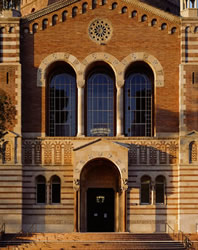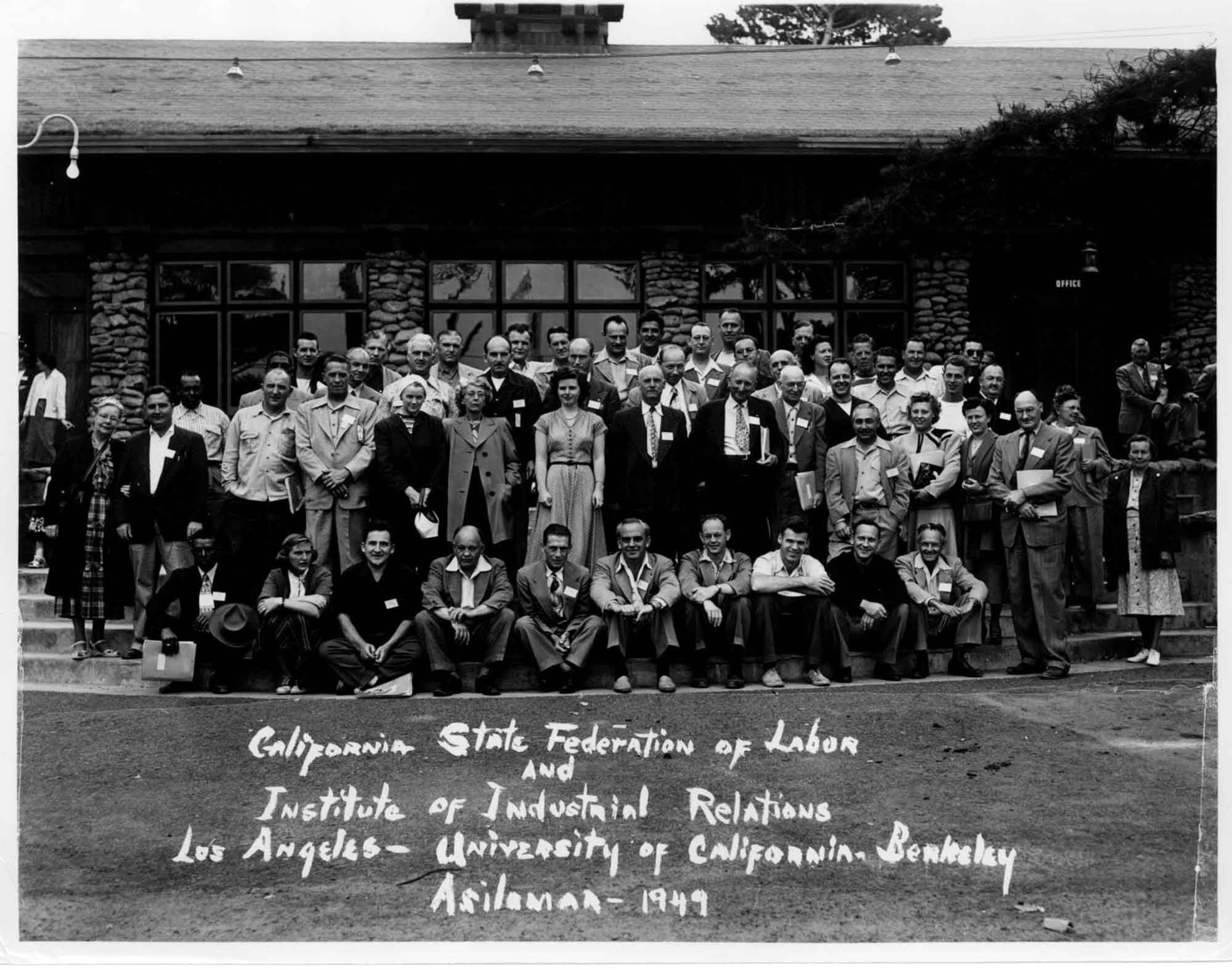IRLE’s History
Since 1946, the people of the UCLA Institute for Research on Labor and Employment (IRLE) have shaped labor policy and practice, supported the vitality of unions and working-class community organizations, and prepared researchers and organizers for careers of consequence. Today, the IRLE is home to a robust group of research, education, and public engagement programs including the UCLA Labor Center, the Labor Studies undergraduate program, the Labor Occupational Safety and Health Program, and the Human Resources Round Table.
Today’s IRLE traces its roots to the early 20th century when academic researchers and organized workers came together to study the problems of modern industry, train the leaders of new unions, and broaden the scope of public higher education. The University of California’s Workers’ Education program, opened in 1921, sponsored annual summer labor schools in the 1930s that trained hundreds of union activists. In the 1940s, UCLA economics professor Paul Dodd won support from university officials and the state’s Republican governor, Earl Warren, for an Institute of Industrial Relations. He suggested a former junior colleague on the War Labor Board–Clark Kerr–as a good pick to lead the Institute on the Berkeley campus.
In the 1950s and 1960s, the Institute supported an elaborate educational program for union members, factory managers, and group insurance administrators. Institute researchers led pioneering studies on quality of work life issues, urban unemployment, and public sector unionism. The founding of the Labor Center in 1964 marked the deepening relationship between the university and the region’s highly unionized industrial workforce. In 1978, the IIR welcomed the launch of the Labor Occupational Safety and Health program (LOSH) to support technical training for workers about threats in the modern workplace.
Sweeping changes to Southern California’s industrial economy in the 1980s undermined many of the region’s most influential unions, and highlighted the challenges of immigrant workers, Black workers, and women workers, especially in the booming service economy. In the 1990s, the Labor Center worked closely with emerging union leaders to study the new economy and evaluate new organizing strategies. Annual “union summer” programs introduced a new generation of students to work with unions and community groups. These programs placed many UCLA alumni in leadership roles in unions and community organizations, and forged strong ties between the university and the region’s diverse communities.
Today, the Institute continues to support cutting edge research on new organizing tactics and emerging labor market issues, as well as forging ties with labor researchers and organizers in Mexico, and across the Pacific region. Building on this rich legacy, our Labor Studies degree program, launched in 2019, is the first of its kind in the University of California system, training the next generation of organizers and researchers to confront our current, multifaceted economic challenges.
 UCLA Insitute for Research on Labor and Employment 40th Anniversary Conference Recordings
UCLA Insitute for Research on Labor and Employment 40th Anniversary Conference Recordings
IRLE (then the Institute of Industrial Relations) held its 40th Anniversary conference, October 17-18, 1986. New digital recordings of the event are now available to listen and download at the Internet Archive.


